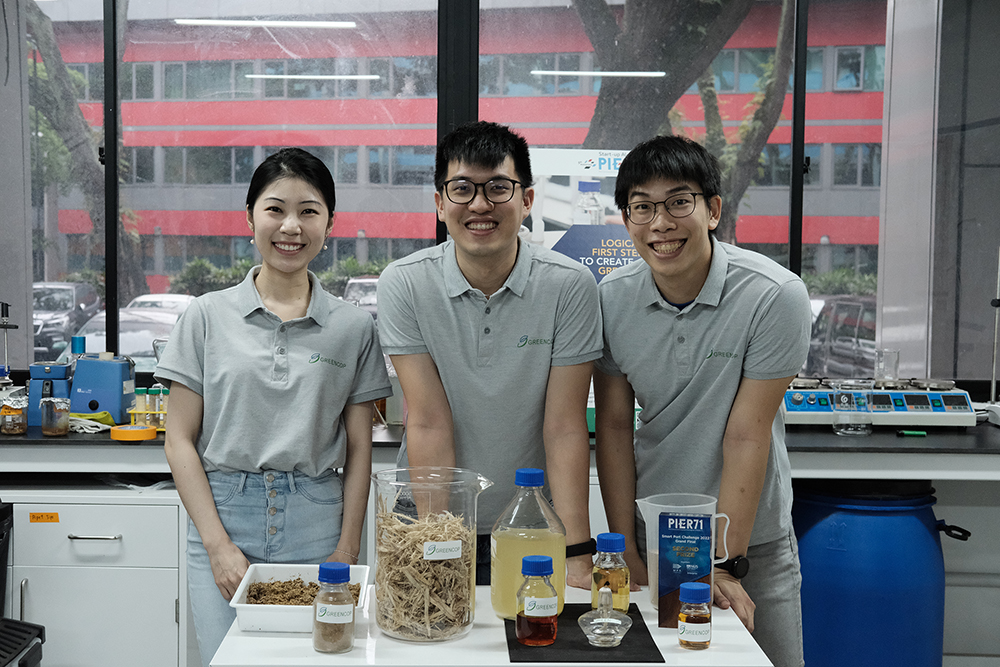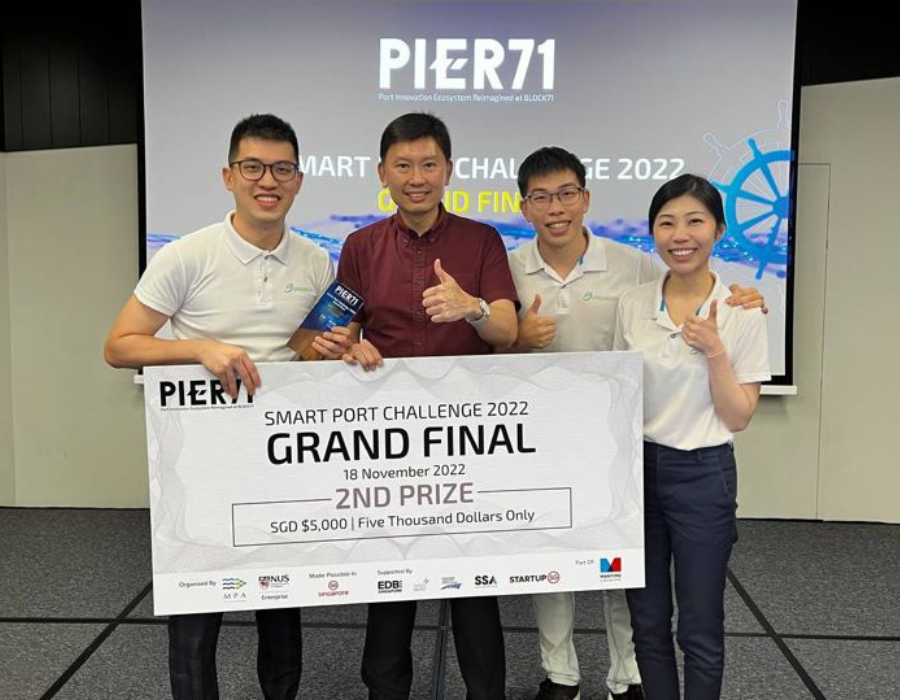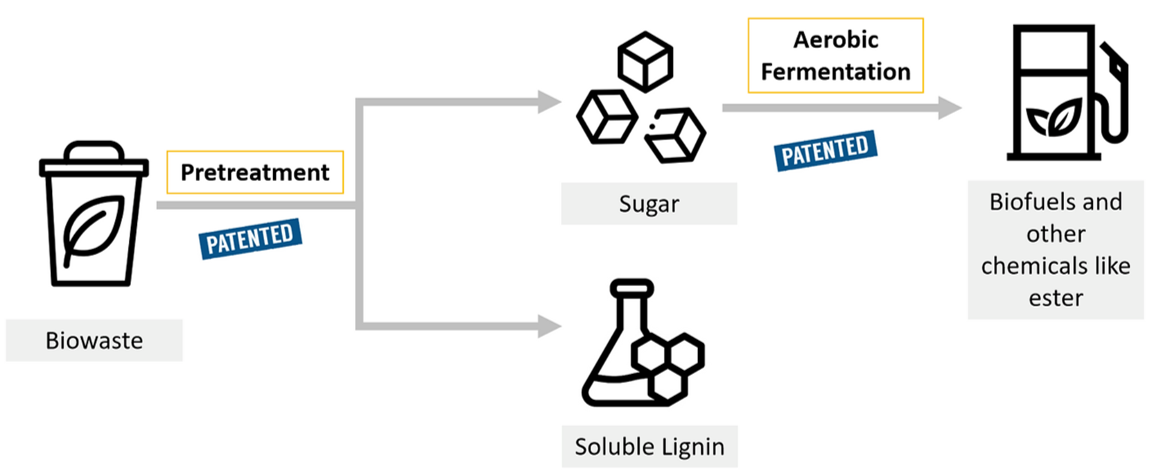Green COP: Transforming Biowaste into Biofuels for a Sustainable Future
From wanting to harness the untapped potential of biowaste, alumnus Hanson Lee and his Green COP start-up team are now paving the way for cleaner energy solutions and a more sustainable future.
 The Green COP team: Sng Yee Ching, Hanson Lee and Low Wang Chang.
The Green COP team: Sng Yee Ching, Hanson Lee and Low Wang Chang.
In the bustling heart of Singapore, a pioneering start-up,
Green COP, stands at the forefront of innovation in the realm of sustainability with its biofuel solutions. It all started with
Dr Hanson Lee (Design and Engineering '24), CEO and Co-founder, whose early experiences with waste management and an eco-conscious upbringing ignited a passion for recycling and upcycling. Formerly an aspiring educator, Dr Lee has now taken on a new role: educating the world about sustainability and decarbonisation through smart technology and waste transformation.

The company's logo, an artful amalgamation of a leaf and an ear, symbolises their commitment to transforming biowaste into biofuels while actively listening to provide the best solutions.
Dr Lee added, “The chosen blue and green tones represent our dedication to nature — the ocean and the forest — and underpins our core principle of sustainability.”
What began as Dr Lee's PhD research project in 2019 swiftly gained momentum. Securing a patent for his innovative pretreatment formulation and fermentation process that converts biowaste into biofuels was just the start. He later discovered the
NUS Graduate Research Innovation Programme (GRIP), which served as a bridge by propelling his idea from lab to market.
Together with his two co-founders, Sng Yee Ching, a like-minded university course mate with a Business Development background, and Low Wang Chang (Design and Engineering ’23), a seasoned chemist with a knack for entrepreneurship whom he crossed paths with during postgraduate studies, the trio embarked on a journey of extracting value from biowaste. This idea, influenced by Dr Lee’s zero-waste upbringing, laid the foundation for Green COP's mission to address two pressing global challenges: to reduce carbon emissions and biowaste accumulation in landfills.

Their journey continued through participation in other start-up programmes, including the
Shell StartUp Engine. However, the onset of the COVID-19 pandemic posed unprecedented challenges. With the market and sustainability interests dwindling, Green COP sought guidance from
NUS Enterprise, which led them to
PIER71™, a hub where entrepreneurial minds converge to reimagine solutions for the maritime industry. Their participation in the Smart Port Challenge 2022, where they secured the runner-up position, steered them towards a strategic pivot. Recounting their turning point, Dr Lee shared, “With the valuable insights, connections and grant support provided by PIER71™ and the Maritime and Port Authority of Singapore (MPA), we transitioned from waste valorisation to decarbonisation and sustainability within the maritime sector. This also aligned seamlessly with the Singapore Green Plan 2030, resulting in a better product-market fit.”

Green COP adopts a product-centric approach to transforming biowaste into high-efficiency, shelf-stable biofuels using proprietary technology. Their revolutionary pretreatment process is 50 percent faster and non-energy-intensive compared to existing industrial methods. The fermentation process, uniquely aerobic, eliminates the need for purging. These attributes allow for seamless integration into existing infrastructure, aiding the transition to sustainable energy solutions and contributing to up to 30 percent reduction in NOx emissions.
Green COP aims to do more than just innovate; they aspire to drive change. Their goal is to inspire individuals, businesses, governments and corporations to collaborate in creating a greener, more sustainable future. They firmly believe that collaboration is key to making a real impact. Through strategic partnerships, Green COP envisions broadening their global footprint, fostering connections across diverse regions and audiences, all to catalyse the adoption of biofuels as a practical energy alternative. With the industry's capital-intensive demands and the need for more biowaste, Green COP is also eyeing expansion beyond Singapore, potentially reaching into Malaysia, Indonesia and China.
From biowaste to marine biofuels, Green COP's journey underscores the profound impact that can arise from a singular idea fueled by a collective drive for a more sustainable world.
This article first appeared in Issue #39 of SPARKS, a publication of NUS Enterprise.